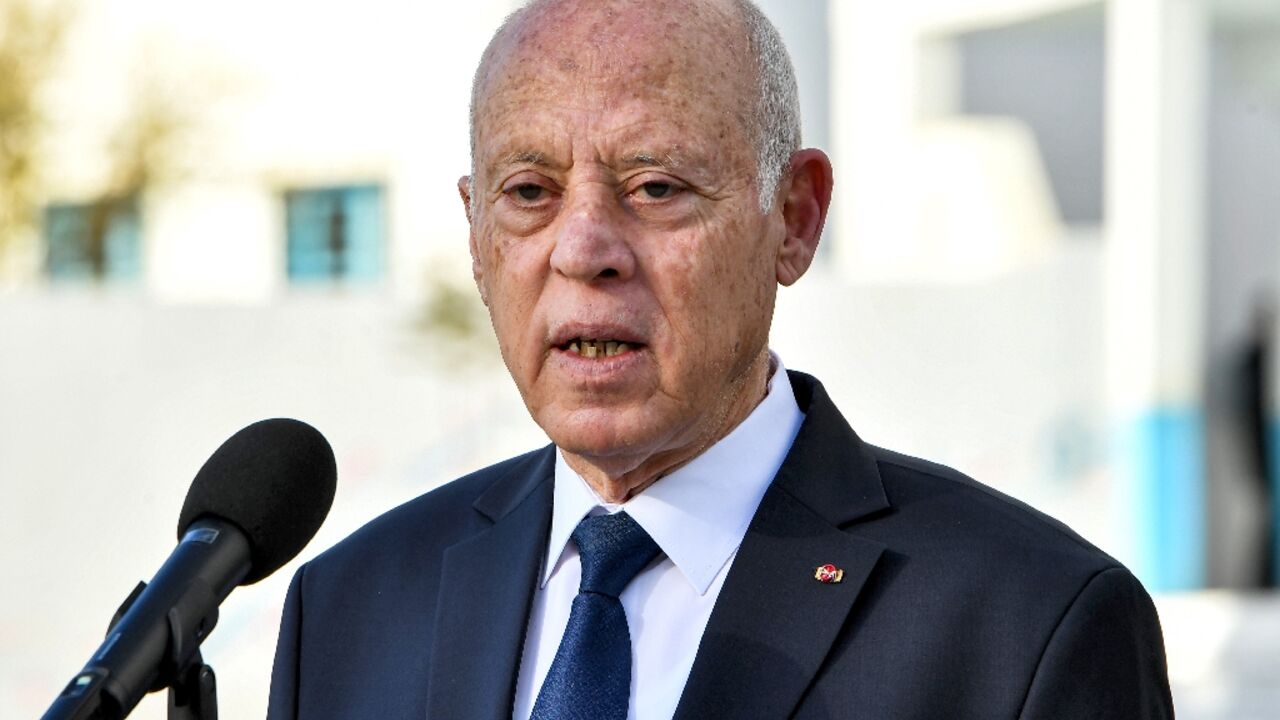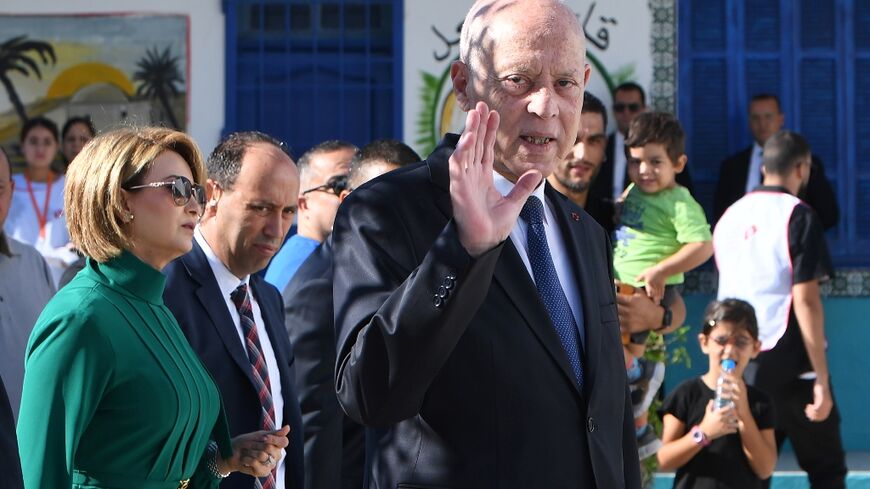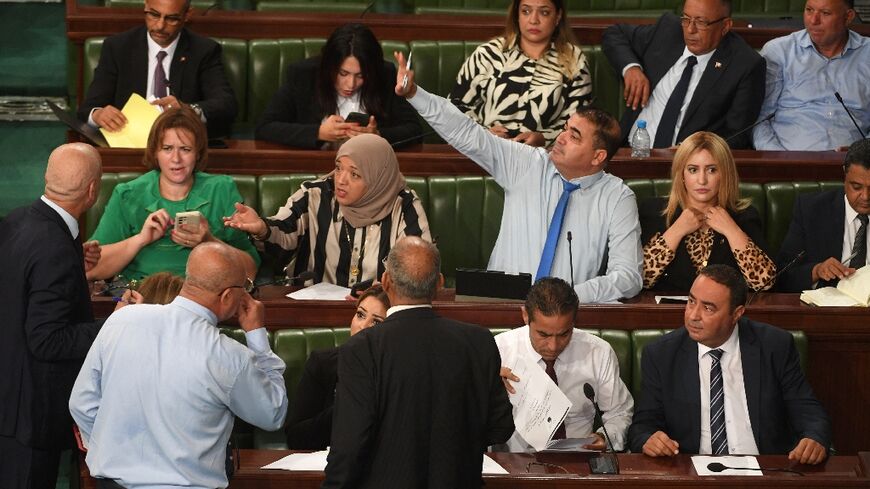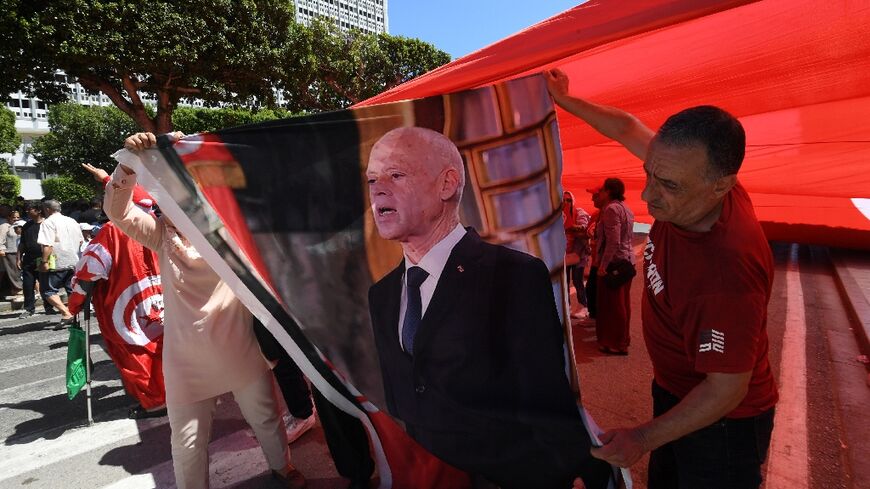Tunisia election body ignores court in presidential vote

Tunisia's electoral board said Monday it approved three candidates for an October 6 presidential election, ignoring court rulings that had granted appeals by three other hopefuls who had been rejected.
The three dismissed candidates were among 14 potential contenders to be turned down by the electoral board, ISIE, last month for not obtaining enough endorsements to challenge President Kais Saied.
Last week, the three hopefuls unexpectedly won appeals at the administrative court against ISIE's decision, in a verdict the court called "definitive".
But on Monday, ISIE chief Farouk Bouasker said the board's initial list of candidates was also "definitive" and "not subject to appeal".
Bouasker said the ISIE was maintaining the initial list because "the administrative court did not officially communicate its decisions within a 48-hour deadline, as per the law".
Saied, the incumbent and election frontrunner, was democratically elected in 2019 but orchestrated a sweeping power grab in 2021 and has since ruled by decree.
Former parliamentarian Zouhair Maghzaoui and businessman Ayachi Zammel are now his only challengers in next month's poll.
Isabelle Werenfels, a political scientist at the Germany-based SWP institute, told AFP that ISIE's decision "has practically decided the outcome of the vote".
- 'Clear path ahead' -
She also said that "part of the justice system under Saied's influence will obstruct the campaigns" of challengers Maghzaoui and Zammel.
On Monday, Zammel was arrested on charges of forging ballot endorsements and was later placed in police custody for 48 hours, members of his campaign said.
His arrest came a month after the treasurer of his Azimoun party was arrested on similar charges.
Several would-be candidates were accused of forging such signatures and barred from running for office.
Hatem Nafti, a political commentator and author of a forthcoming book on Saied's authoritarian rule, said the incumbent "now has a clear path ahead of him".
"The candidates who could have hindered Saied have just been eliminated," he told AFP, adding that ISIE's decision "has proved that there is no longer any rule of law".
"We now have a candidate from within the regime," he said of Maghzaoui, who supported Saied's 2021 power grab, "and another one in prison since this morning".
Zammel is the only approved candidate to have been arrested, but he joins a list of would-be hopefuls who have been imprisoned or are facing prosecution.
Prior to Zammel's arrest, Human Rights Watch said Tunisian authorities "have prosecuted, convicted or imprisoned at least eight prospective candidates" for the October vote.
The North African country under Saied was "gearing up for a presidential election amid increased repression of dissent and free speech, without crucial checks and balances on President Saied's power", HRW added.
The rejected candidates whose appeals were granted are Imed Daimi, an adviser to former president Moncef Marzouki, former minister Mondher Zenaidi and opposition party leader Abdellatif Mekki.
Zenaidi's campaign staff said Monday they would again appeal ISIE's decision with the administrative court.
In a Facebook post, they said ISIE "showed that it is no longer independent".
On Saturday, a petition signed by prominent Tunisians and civil society groups urged that rejected candidates be allowed to stand in the election.
The petition said the administrative court's rulings on appeals "are enforceable and cannot be contested by any means whatsoever".
- 'Pure formality' -
It also called on ISIE to "respect the law and avoid any practice that could undermine the transparency and integrity of the electoral process".
But ISIE's announcement Monday of the official list of candidates dashed such hopes.
Activists and political figures gathered near the ISIE offices to protest against the electoral board's final list.
"Today, ISIE decides whatever it wants and even goes beyond the rulings of the highest judicial authority," said Rim Mahjoub, leader of the Afek Tounes party, referring to the administrative court.
Houssem Hami, coordinator of the Soumoud centre-left political coalition, said that with only three candidates "the election will become a pure formality, without much excitement for Tunisians".
For Werenfels, however, the conflict between ISIE and the administrative court showed "there are elite struggles behind the scenes among proponents and opponents of Saied".
"This could be positive for what remains of democracy," she said. "But it is also problematic if not dangerous."
"The president could become more authoritarian if he feels he is being challenged."




